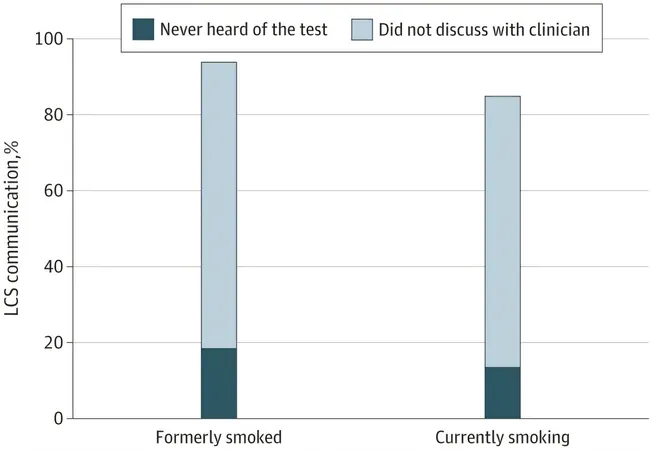
How Family Vacations Can Transform Your Kids into Financial Whizzes: The Secrets Parents Swear By!
2024-11-03
Author: Wei
Introduction
SINGAPORE – Family vacations can be an opportunity not just for bonding but also for imparting valuable financial lessons to your children. Mrs. Mey Sam’s approach with her three kids has proven successful in teaching them the essentials of money management even from a young age.
Entrepreneurial Spirit in Kids
When her eldest daughter Jazreel was just ten years old, she dived into entrepreneurship by baking and selling cakes and macarons to friends and family. At the age of 14, Jazreel expanded this venture by designing and selling stickers for bullet journals. Thanks to social media, her client base even reached an international audience. Jazreel also started a YouTube channel that amassed over 1,000 subscribers, aimed at inspiring others about bullet journaling.
Teaching Financial Value
Mrs. Sam's younger children, Glenda, 16, and Marcus, 13, took a different route. They cleared out their old belongings, selling items like PopMart figurines and Pokemon cards on platforms such as Carousell, helping them grasp the notion of turning unused items into cash.
By encouraging her children to earn their own spending money for family vacations, Mrs. Sam has helped them develop an appreciation for financial value. Although the bake sales weren’t always profitable in terms of covering costs, they provided Jazreel with practical experience in calculating material costs and analyzing profits.
Instilling Thriftiness
As Mrs. Sam, a senior deal structurer at energy giant Shell, explains, “Though we can afford holidays, we instill a sense of thriftiness in our children.” The family often chooses vacations in nearby countries like Thailand and Vietnam to keep expenses manageable, and this December, they will embark on a long-awaited trip to Italy—a first for the whole family.
Teaching Transparency in Finances
Financial responsibility is a family affair. Mrs. Sam emphasizes the importance of transparency by openly discussing travel budgets with her children, breaking down costs like hotel rates, air tickets, and daily expenditures. This practice fosters an understanding of how seemingly mundane decisions—like dining at a local eatery versus a restaurant—can impact a budget significantly.
Embracing Financial Lessons
Perhaps more impressively, the Sam children have fully embraced these lessons in their everyday lives. They choose to bring their own water bottles to school, avoiding the temptation of expensive snacks, all while learning that thoughtful spending leads to better financial choices.
Introducing Opportunity Cost
Mrs. Sam introduced the concept of opportunity cost early on, illustrating it with simple scenarios. For instance, when Marcus was five and moving away from diapers, she presented him with a choice: keep buying diapers or use that money to buy Milo. This choice motivated him to complete his toilet training while understanding the trade-off involved.
Family Discussions on Travel Plans
Discussing their holiday plans as a family allows every member to express their preferences and expectations. According to Mrs. Sam, even though their friends may travel to more exotic destinations, her children have never shown envy; they appreciate their meaningful family experiences.
Expert Insights
Financial experts agree that integrating financial lessons into family trips equips children with essential skills. Tan Siew Lee, head of group wealth management at OCBC, suggests that parents engage their children in holiday planning, allowing them to research attractions and understand associated costs, thus reinforcing the concept of saving towards experiences rather than impulsive purchases.
Setting a Vacation Budget
Moreover, parents can provide a specific budget for spending during the vacation. This tactic instills the discipline of planning and encourages children to think carefully about their purchases, allowing them to weigh their options thoughtfully.
Monitoring Currency Exchange Rates
Other strategies involve monitoring currency exchange rates and allowing children to take ownership of their financial decisions by alerting parents during favorable rates—a skill that could save the family money.
Engaging Older Children in Cost Comparisons
For older children or teens, engaging them in cost comparisons for flights, hotel bookings, and activities will expose them to the dynamic nature of pricing in travel planning. As they weigh the value of accommodations and meal options, they grasp how different choices impact their overall financial experience.
Lessons on Needs vs. Wants
Lastly, souvenir shopping can provide an invaluable lesson on needs versus wants—prompting kids to critically assess what they truly value.
Encouraging Negotiation Skills
Encouraging negotiation skills by engaging in bargaining in markets can be an enjoyable way for children to learn about price-value relationships and develop their financial acumen.
Conclusion
Ultimately, family vacations present a golden opportunity for not just relaxation and adventure, but a treasure trove of financial life lessons that will serve children well into adulthood. As Mrs. Sam reflects on her family’s approach, one thing is certain: these experiences lay a strong foundation for financial literacy and responsibility in their future endeavors.
As we continue to explore the crucial topic of financial literacy, stay tuned for our next article, offering even more compelling insights and strategies to prepare kids for financial success!


 Brasil (PT)
Brasil (PT)
 Canada (EN)
Canada (EN)
 Chile (ES)
Chile (ES)
 España (ES)
España (ES)
 France (FR)
France (FR)
 Hong Kong (EN)
Hong Kong (EN)
 Italia (IT)
Italia (IT)
 日本 (JA)
日本 (JA)
 Magyarország (HU)
Magyarország (HU)
 Norge (NO)
Norge (NO)
 Polska (PL)
Polska (PL)
 Schweiz (DE)
Schweiz (DE)
 Singapore (EN)
Singapore (EN)
 Sverige (SV)
Sverige (SV)
 Suomi (FI)
Suomi (FI)
 Türkiye (TR)
Türkiye (TR)